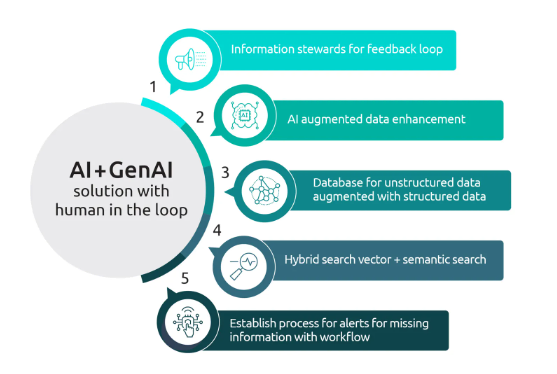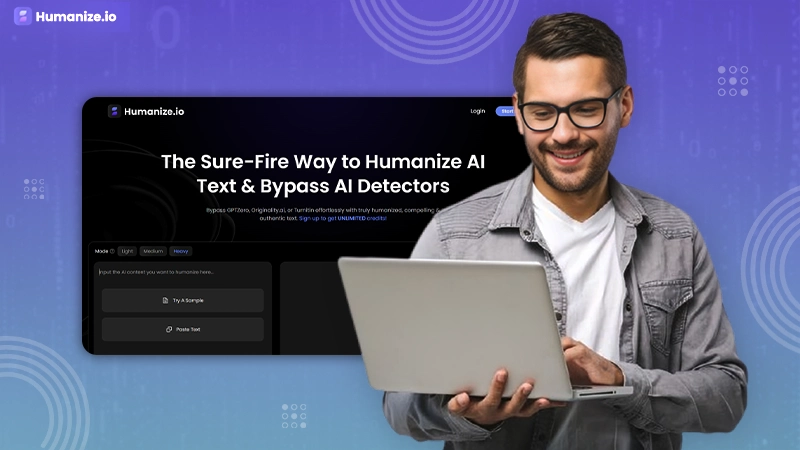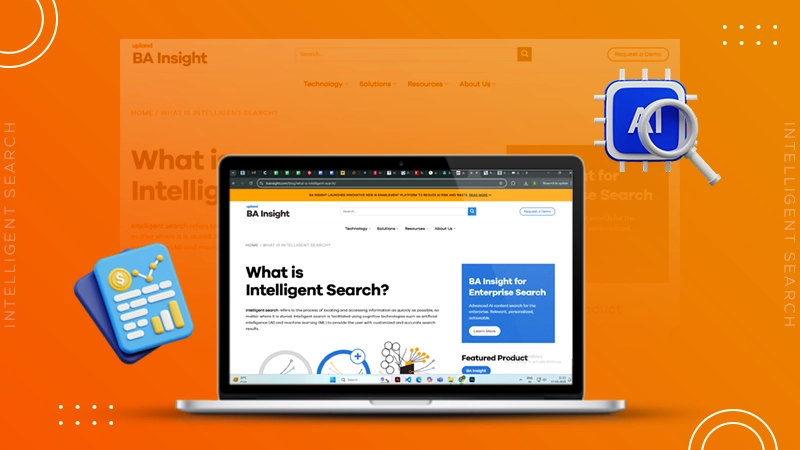Unlocking Knowledge: How Intelligent Search is Transforming Information Retrieval
Shockingly! The use of AI in search engines isn’t a one-way street either. Businesses are utilizing the technology to enhance their SEO efforts, with 65% of companies believing AI improves online visibility. (Gisma)
As we go back in time, the search engines are very specific and require precise word selection to get the preferred results.
But now, because of the technological evolution in the domain of the internet, we can get the appropriate pages by putting some relevant keywords.
Due to this enhancement, many unique and creative web pages welcome us, which are analyzed and filtered by different metrics of AI protocols.
Being an SEO expert for more than 5 years, I have personally witnessed this extensive revolution. And in this blog post, I’m going to spread my knowledge of this vast concept to the readers.
Let’s get started!
Key Takeaways
- Understanding Intelligent Search: An overview
- The Role of AI in Greater Evolution
- Transforming UI and UX with Natural Language Processing
- How it reshaped data accessibility and knowledge management
- Future of the immersive search algorithms: The End Note
- Most asked questions
Understanding Intelligent Search: The Evolution of Information Retrieval
To start this topic, I know many millennials who are using Google or retro engines like Firefox. People from this generation are going to agree that in the past, you had to search very precisely to get your desired results.
But after the emergence of the intelligent search, the whole spectrum was changed. Now it has become so accessible that even a few words can give you the best results and FYP pages.
This evolution has drastically simplified the way the inputs used to be placed on the search bar, and users can now access everything using advanced modems like voice commands and circle to search to get concise and rapid results. The credit for these immersive concepts simply goes to AI algorithms, and in the next phase, we are going to them in detail.
The Role of Artificial Intelligence in Shaping Search Algorithms
The search engines used to be very bland and very unresponsive, leading you to the empty void of nothingness if you were aligning your words and phrases properly. But because of AI search engines, now you can get answers by putting pictures, codes, or even any related keyword of the genre without any hassles.
Constantly evolving AI assistants like Gemini, Siri, and Alexa are providing automatic suggestions when it comes to uploading a prompt by drastically analyzing the behavior and preferences of their users.
Aside from UI, this new gen infrastructure is also redefining multiple practices of search engine optimization by adding a hybrid assessment to analyze different AI patterns and deduce the duplicate and repetitive content at a rapid pace.
Did you know?
Our research shows that over 90% of the sources AI search engines use to craft their responses come from the top 10 ranking results for individual sub-queries.
Transforming User Experience with Natural Language Processing
Now let me tell you about the best feature of this entire segment, and it is none other than the Natural Language Processing of the extension units. There are so many people around the world who are not capable of pronouncing things properly due to varied, unforeseen circumstances.
And to effortlessly reduce their strain, these innovations provide accurate suggested pages or “did you mean” phrases by matching the user’s tendency, and provide them with what they were looking for. Other than this amazing feature, it also provides benefits like:
|
|
|
|
|
The Impact of Intelligent Search on Data Accessibility and Knowledge Management

Taking this infographic as a reference, I will explain some points that will help you understand the concept of the beneficial effects of search optimization in knowledge management and data accessibility:
- The first is information stewards, which will going to be crucial for determining and managing the quality, security, and subordination of the data environment.
- The second is going to be AI augmented data enhancement for assessing the quality, accuracy, and comprehensiveness of data; individual abilities are paramount.
- Next up, we have a database for unstructured data augmented with structured data for expands unorganized data with systematic data, such as document metadata and access permissions, adds valuable context.
- Now there are two terms hybrid search and vector semantic search which result in improved position through ranking fusion techniques, which merge results from both search types.
- Lastly, To automate continuous monitoring of processes and workflows, it’s essential to integrate systems for alerts and monitoring.
Future Trends: What’s Next for Intelligent Search Technology
If you look at the broader perspective, I believe that innovation never stops. Over the years, we have seen so many revolutionary benchmarks that have changed history forever. Similarly, this domain will effectively evolve and achieve so many unimaginable milestones.
I think the first batch of improvements that we are going to see in the Anticipatory search systems because to their operations in contextual observation.
Then, to a further extent, we can see the amalgamation of AR and VR systems in this segment also, which will raise the level of understanding assessment into a whole new dimension.
Nonetheless, to summarize this entire journey, I just want to say that machines are learning like humans and trying to analyze the variations of the human emotional spectrum by observing different search patterns. For deeper insights, make sure to carefully read this article.
Frequently Asked Questions
Ans: Intelligent search applications use natural language processing to discern meaning and make correlations across data sources, such as social media (tweets, LinkedIn), customer feedback, e-commerce reports, and maintenance records, to reveal real-time insights with speed and precision.
Ans: Google’s AI technology is used to analyze and understand the content of webpages, as well as to identify patterns in user behavior.
Ans: Intelligent search uses AI technology to understand user intent, providing results beyond simple keyword matches and suggesting additional relevant materials based on the user’s role and historical interactions.










